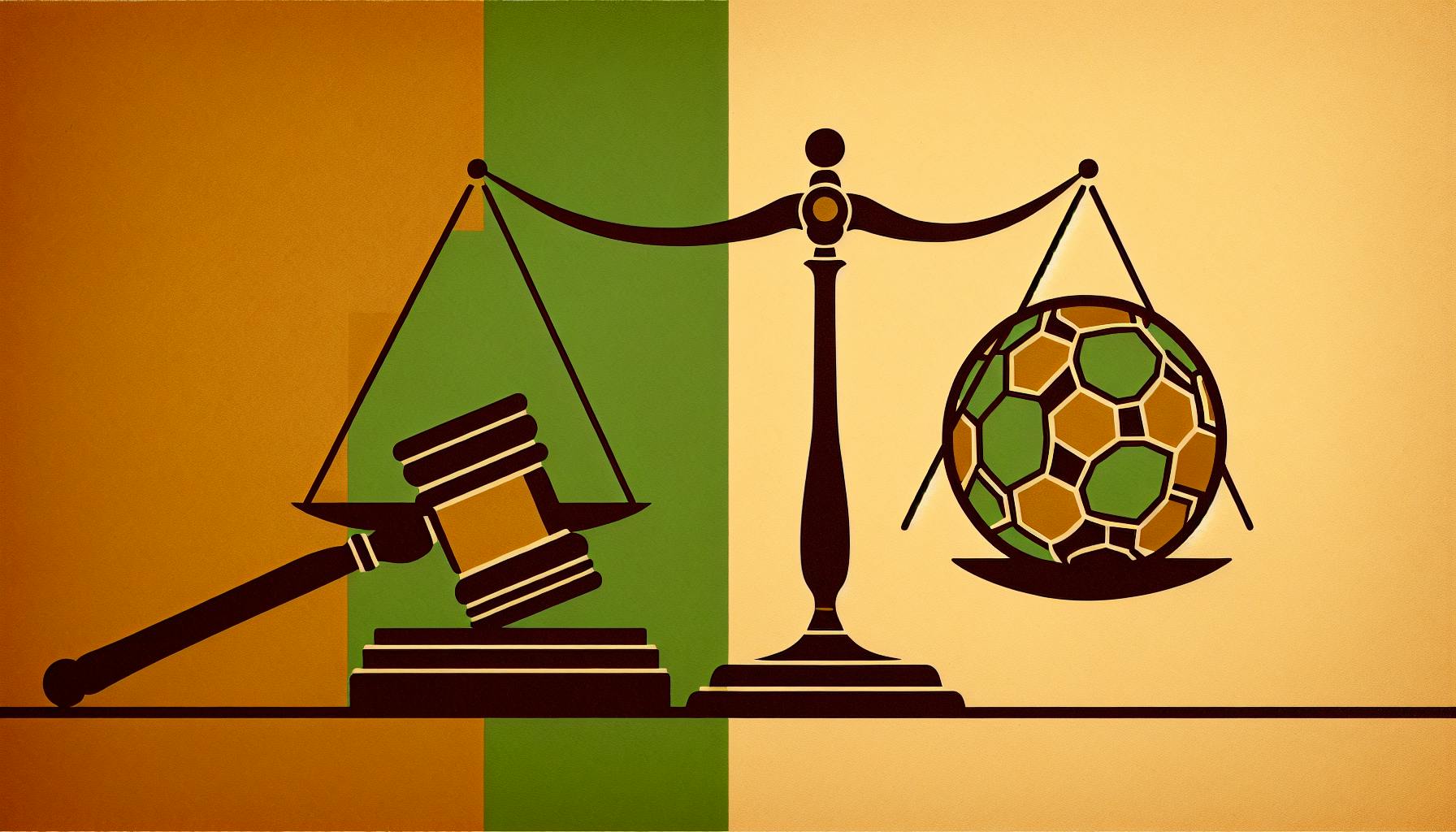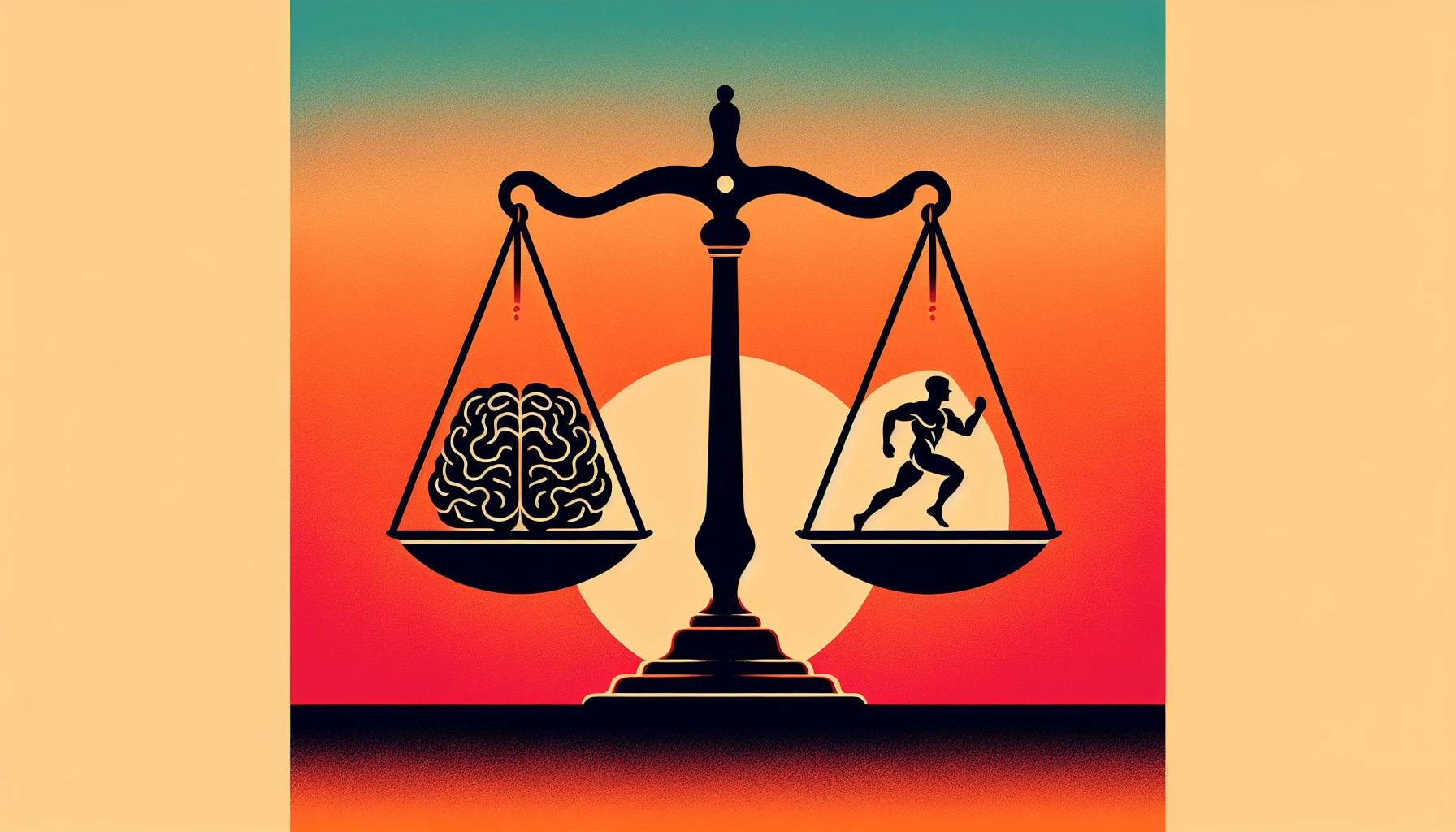Finding an impartial jury and convenient venue are crucial in federal criminal trials, though not always straightforward.
This article provides an in-depth analysis of Federal Criminal Rule 21, which allows transferring venue to another district or state when prejudice, inconvenience, or inaccessibility impede a fair and efficient trial.
We will examine the grounds and procedure for transferring venue, compare Rule 21 with Rule 20, and consider key factors judges weigh in these decisions - helping inform strategic use of transfers to advance justice.
Introduction to Federal Criminal Rule 21: Transfer for Trial
Federal Criminal Rule 21 allows for the transfer of a criminal case to another district or division where trial would be more convenient or in the interests of justice. The rule provides the legal framework for motions to transfer venue in federal criminal cases.
Understanding the Motion to Transfer Venue in Federal Court
A motion to transfer venue requests that the court move a trial to a different location. Under Rule 21, the court can transfer a case to another district if:
- The court determines the defendant cannot obtain a fair and impartial trial in the current district
- The offense was committed in more than one district or division
The motion must be made within 21 days after arraignment. Both the prosecution and defense can file a motion to transfer.
Assessing the Grounds for Removal of a Criminal Case to Federal Court
There are limited grounds for removing a state criminal case to federal court. The main basis is if a federal court has jurisdiction over the offense charged. For example, certain federal laws may preempt state laws in some cases.
Factors like diversity of citizenship or the amount in controversy generally do not allow a state/local case to get transferred to a federal court. The offense itself needs to violate federal law.
Navigating the Rule 21 Transfer Procedure and Deadlines
To request a transfer of venue, the moving party must file a motion within 21 days after the defendant's arraignment. The motion must state the reasons for the request and the proposed transferee district.
All parties can submit briefs supporting or opposing the motion. The judge will issue a ruling, weighing factors like location of witnesses, accessibility of evidence, and local public interest in the case.
What is the rule 21 of the federal rules of civil procedure?
Rule 21 of the Federal Rules of Civil Procedure allows courts to add or drop a party to a case, or sever any claims against a party, at any time on just terms.
Some key points about Rule 21:
-
It gives courts broad discretion to manage the parties and claims in a lawsuit. The court can use Rule 21 to add or drop parties to simplify the proceedings or prevent prejudice.
-
Courts often use Rule 21 to drop dispensable nondiverse parties in order to preserve diversity jurisdiction. For example, if a nondiverse defendant is not an indispensable party, the court may drop that defendant to retain jurisdiction.
-
Claims against a party may be severed under Rule 21 to allow the case to move forward on some claims while others are addressed separately. This helps streamline complex cases.
-
Rule 21 severance creates two independent actions, unlike bifurcation which divides a single trial into separate phases.
So in summary, Rule 21 is a case management tool that lets courts add or remove parties and claims as needed to efficiently handle the case and avoid unfair prejudice. The court has broad discretion over using Rule 21 for these purposes.
What three conditions must be present before a prosecutor charges a criminal case?
According to federal guidelines, prosecutors should only file criminal charges if three key conditions are met:
-
Probable cause - The prosecutor must reasonably believe there is probable cause that the defendant committed the alleged crime. This means there must be sufficient evidence to lead a reasonable person to believe the defendant is guilty.
-
Sufficient admissible evidence - The prosecutor must believe there is enough legally admissible evidence that would be sufficient to support a conviction beyond a reasonable doubt at trial. This sets a high bar for the strength of evidence required.
-
Interests of justice - The prosecutor must determine that filing charges is in the "interests of justice." This involves weighing factors like protecting public safety, deterrence, rehabilitation, fairness, proportionality, and discretion. Filing charges that seem excessive or unfair compared to the alleged crime would go against the interests of justice.
In summary, prosecutors are ethically obligated to only file charges when these three conditions of probable cause, evidentiary sufficiency, and serving justice are reasonably satisfied based on the circumstances. This helps prevent overcharging or prosecuting cases on flimsy evidence.
What is a rule 21?
Rule 21 of the Federal Rules of Criminal Procedure allows for the transfer of a criminal proceeding to another district court for trial. This rule provides that upon motion of the defendant, the court must transfer the proceeding against the defendant to another district if the court is satisfied that so great a prejudice against the defendant exists in the transferring district that the defendant cannot obtain a fair and impartial trial there.
The rule states that the motion to transfer can be made at or before arraignment or at any other time after the defendant has appeared. The defendant's motion to transfer automatically waives their constitutional right to be tried in the district where the offense was committed. However, the prosecution can also make a motion to transfer under this rule if they believe an impartial trial cannot be had in the original district.
Some key aspects of Federal Criminal Rule 21 include:
- It allows transfer to prevent prejudice against the defendant and ensure a fair trial
- The defendant's motion waives their right to be tried in the offense district
- Prosecution can also motion for transfer if an impartial trial is unlikely
- Motion can be made before arraignment or anytime after first court appearance
- Transfer is to another federal district court, not a state court
So in summary, Rule 21 provides an important safeguard for federal criminal defendants by allowing transfer between federal districts when fair and impartial juries are unlikely in the original venue. Both parties can motion for transfer, but the defendant waives their constitutional venue rights upon doing so.
Why would a defendant ask for a trial to be moved to another location?
There are several reasons why a defendant may request to have a trial moved to another location under Federal Criminal Rule 21:
-
Pretrial publicity: If there has been extensive media coverage or public discussion about the case in the original district, it could bias potential jurors. Moving the trial to a district with less pretrial publicity gives the defendant a better chance of getting an impartial jury.
-
Bias or prejudice: Even without significant publicity, the defendant may argue that strong local views or attitudes could prevent getting an unbiased jury pool in that district. Transferring the case could help secure impartial jurors.
-
Political atmosphere: High-profile cases can sometimes take on a political dimension. If the existing political climate seems likely to improperly influence the jury, the defense could request a change of venue on that basis.
-
Fair trial concerns: Any circumstances that would prevent the defendant from obtaining a fair trial in the original district are grounds for seeking transfer. For example, an inability to safely access the courthouse or threats against witnesses.
The core purpose of a change in venue is ensuring the defendant's constitutional right to a fair trial by an impartial jury. If existing conditions seem incompatible with that right, Rule 21 allows the defense to request moving the trial location. The judge ultimately decides if a transfer is merited based on the evidence presented.
sbb-itb-585a0bc
sbb-itb-585a0bc
sbb-itb-585a0bc
sbb-itb-585a0bc
Factors Determining Rule 21 Transfer
This section will delve into the various considerations the court takes into account when deciding on a Rule 21 motion to transfer a criminal case.
Evaluating Prejudice and Impartiality in the Original Venue
When evaluating a motion to transfer under Rule 21, the court will consider whether holding the trial in the original venue would result in prejudice against the defendant or prevent the defendant from receiving an impartial trial.
The court examines factors such as whether there has been extensive negative pretrial publicity about the case that could bias potential jurors. Media coverage does not automatically warrant a transfer, but if the court finds it would be difficult or impossible to seat an impartial jury, a transfer may be justified.
The court also looks at whether the jury pool may be prejudiced due to the characteristics or status of the defendant. For example, if the defendant is a recognizable public figure or there are racial tensions in the community regarding the case.
Additionally, the nature and circumstances of the offense may create prejudice in the original district. In certain types of cases, such as terrorism, treason, or organized crime cases, finding impartial jurors may be unlikely.
Analyzing the Convenience and Location of Witnesses and Evidence
When deciding a motion to transfer venue, an important consideration for the court is the convenience and location of witnesses and evidence relevant to the case.
If the majority of witnesses and evidence are located closer to another district, transferring the case there would ease the burden on witnesses who would otherwise need to travel further distances to testify. This ensures witnesses are readily available to provide testimony at trial.
The ability to have jury members inspect a crime scene or other tangible evidence first-hand is also a factor if such evidence exists. Transferring the case to the district where key evidence is located facilitates this if deemed essential.
Overall, the goal is to minimize inconvenience and logistical challenges for witnesses and enable both parties to more easily access evidence and present arguments.
Considering the Logistical and Financial Impact on Defendants
The court may consider the logistical and financial hardships defendants would face if the trial were to be held in the original venue rather than transferring it to another district.
Factors like the ability for a defendant to work with counsel in preparing their defense, arranging travel, and paying for accommodation away from home for the duration of a lengthy trial are considered.
Transferring the case to another district closer to where a defendant resides or works may significantly minimize the overall burden in terms of time, costs, and disruption to their personal or professional obligations.
Alleviating logistical and financial challenges improves a defendant's ability to actively participate in their own defense. It also upholds the principles of fairness and access to justice.
Transfer Criminal Case to Another State: Rule 21 in Action
Rule 21 of the Federal Rules of Criminal Procedure allows for the transfer of a criminal case to another district or state if doing so would serve the interests of justice. This section examines real-world examples of how Rule 21 has enabled the interstate transfer of criminal cases.
Case Analysis: Interstate Transfer Decisions
In United States v. McDade (1991), the defendant was indicted for racketeering activities in Pennsylvania. The case was transferred to the District of Columbia under Rule 21(b) to join it with a related case against other defendants. This allowed a more efficient prosecution with a single trial. The appellate court upheld the transfer, noting that common evidence and witnesses justified trying the cases together.
Another example is United States v. Weddell (2004), where charges against multiple defendants in both Florida and Georgia were consolidated in a single case in Georgia. The Florida defendants moved for the case to be transferred back to Florida under Rule 21(b). The court denied the transfer motion, finding that the interstate nature of the alleged crimes meant Georgia was an appropriate venue.
These cases demonstrate how Rule 21 interstate transfers can enable efficient prosecution, especially for multi-district crimes. The judge weighs fairness, convenience, and justice in deciding transfer motions.
The Role of Judicial Discretion in Interstate Transfers
Judges have significant discretion in evaluating Rule 21 transfer requests. They weigh statutory factors like location of the defendant, witnesses, evidence, convenience, and interests of justice. Judges balance these issues against principles like defendant rights and efficient prosecution.
For example, in United States v. Spy Factory (2009), the judge emphasized fairness and convenience in granting an interstate transfer over government objections. Key defense witnesses were located where the case was transferred to.
Ultimately, the judge must evaluate all case specifics to render an appropriate transfer decision. Their discretion enables tailoring the venue to the circumstances while upholding legal principles. This nuanced analysis often determines the ruling on interstate transfer motions.
Comparing Rule 21 and Rule 20 Transfers
Rule 21 and Rule 20 transfers are two procedures in federal criminal cases that allow for transferring the case to another district or division. Here is an overview of how they compare:
Understanding Rule 20 Transfers and Their Unique Aspects
Rule 20 allows a defendant arrested in one district to plead guilty and waive trial in that district, and then have the case transferred to another district for sentencing. Some key aspects of Rule 20:
- Defendant must consent and plead guilty before the transfer
- Used when defendant wants to plead guilty but face sentencing in a different district
- Often used for convenience if defendant lives in a different district
- No requirement to show prejudice in current district like with Rule 21
So in summary, Rule 20 requires the defendant's consent and guilty plea upfront to transfer for just sentencing in another district.
Strategic Use of Rule 20 in Criminal Case Management
Defense counsel may prefer a Rule 20 transfer rather than a Rule 21 transfer for strategic reasons in certain cases. For example:
- If concerned the current district may impose a harsher sentence
- To have sentencing closer to where a defendant resides for convenience
- Due to familiarity with the sentencing judges and their typical sentences
Prosecutors may also favor Rule 20 to secure a guilty plea and avoid the time and expense of a trial. So Rule 20 can provide benefits to both sides in the right circumstances.
In the end, Rule 20 provides an efficient path to pleading guilty and facing sentencing in a different district when both parties consent. Rule 21 involves more complex procedures for demonstrating prejudice and does not require the defendant's consent.
The United States Courts and Judicial Administration in Transfers
This section explores the role of the United States Courts system and judicial administration in transfers under Federal Criminal Rule 21.
Court Role and Structure in Transfer Decisions
The federal court system is arranged hierarchically, with 94 district courts serving as trial courts and 13 courts of appeals serving as intermediate appellate courts. Requests for transfers originate at the district court level and are decided by district court judges. These judges weigh factors like location of events, accessibility of evidence, ability to secure defendant's presence, and interests of justice. Their structural role directly impacts transfer decisions.
Judges & Judgeships: Decision-Makers in the Transfer Process
District court judges decide Rule 21 transfer requests based on case specifics. Their experience and perspective shape assessments of appropriate venues. Judgeships are lifetime appointments, fostering accumulated wisdom. However, lack of diversity among the judiciary may introduce biases. Overall, judges are gatekeepers for venue changes.
Judicial Conduct & Disability Concerns in Transfer Decisions
Ethical standards govern federal judges. The Judicial Conduct and Disability Act of 1980 defines processes for complaints if disabilities or misconduct seemingly impact duties like transfer decisions. However, substantive reviews of decisions themselves are rare. Still, professional conduct standards aim to promote integrity in the transfer process.
Conclusion and Key Takeaways on Federal Criminal Rule 21 Transfers
Recap of Rule 21's Impact on Criminal Case Venue
Federal Criminal Rule 21 allows defendants or prosecutors to request a transfer of venue in criminal cases under certain circumstances. Key takeaways regarding Rule 21's impact include:
- Allows transfer if unable to receive fair trial in current district or for convenience
- Gives discretion to judges in evaluating transfer requests
- Key factor is serving justice and ensuring fair proceedings
- Strategic considerations around location, judges, jury pools in transfer decisions
Overall, Rule 21 enables flexibility in determining the optimal venue for a fair criminal trial to occur.
Final Thoughts on Strategic Approaches to Venue Transfers
When evaluating a motion to transfer venue under Rule 21, both prosecution and defense should carefully weigh:
- Individual judge and jury pool demographics in current vs proposed district
- Convenience and logistics for witnesses and evidence access
- Knowledge of similar cases and outcomes across jurisdictions
Crafting a compelling rationale grounded in serving justice is key. Rule 21 provides an avenue to argue for a venue better suited to ensure fair proceedings.


